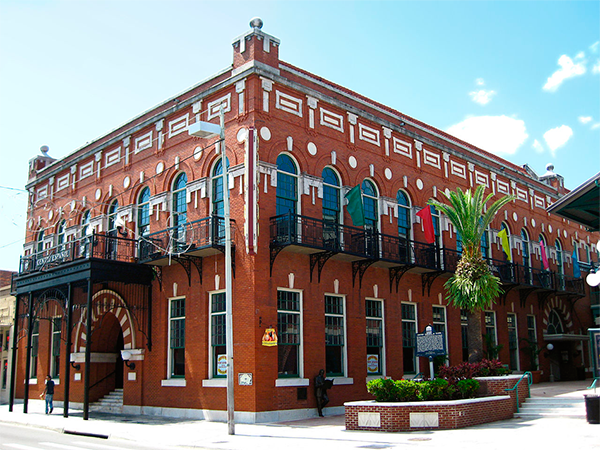

In this unit you will study Object Pronouns.




Imagen: El Centro Español de Tampa. Creative Commons. https://en.wikipedia.org/wiki/Spanish_Americans#/media/File:Centro_Espa%C3%B1ol_de_Tampa.jpg
Instructions: Read the following information about Spanish Americans.
Within a US context, the meaning of Spanish Americans is distinguished from Hispanics or Latin Americans. Eventhough it also refers to Americans whose ancestry originates wholly or partly from Spain.
The term “Spanish-American” is used only to refer to Americans whose ancestry originates directly from Spain, and therefore excludes ethnically Spanish Americans who immigrated to the US from Latin America.
An exception to the rule are Tejanos, Nuevomexicanos and Californios, all of them descendants of Mexican citizen inhabiting Mexican territory later acquired by the United States, who are typically considered to be Spanish Americans.
Spanish Americans. Retrieved October, 2016 from https://en.wikipedia.org/wiki/Spanish_Americans

Instructions: Read the text and choose True or False.
Spanish Americans are the longest-established European-American group with a continuous presence in Florida since 1565 and are the eighth-largest (choosing the term “Spaniard”) Hispanic group in the United States of America. About 50.5 million Americans are of Latin American descent and therefore a majority of which have Spanish ancestry due to five centuries of Spanish colonial settlement and large-scale immigration to both pre and postcolonial Latin America.
Spanish Americans. Retrieved October, 2016 from https://en.wikipedia.org/wiki/Spanish_Americans
Instructions: Choose True or False for the following statements

Instructions: Read the following information about Object pronouns:
Remember: We use pronouns to substitute nouns
Object pronouns are used after the verb.
For each personal pronoun there is an object pronoun as follows:
Examples
Those are books. I like them.
My bag is over there. Please, give it to me.
Instructions: Replace the underline words for a suitable object pronoun.

Instructions: Drag and drop the appropriate object pronoun into the following paragraph.
Spanish Americans are readily accepted into American society. The Spanish work ethic is compatible with the values of . In Both pre– and post–industrial Europe, leisure time is used to maintain essential social contacts and people identified with upward social movement.
Many Spanish Americans still retain aspects of their culture. This includes Spanish food, drinks, art, annual festivities. Spaniards really love . They have contributed to a vast number of areas in the United States of America. The influence of Spanish cuisine is seen in the cuisine of the United States throughout the country.

Instructions: Replace the underline words for a suitable object pronoun.